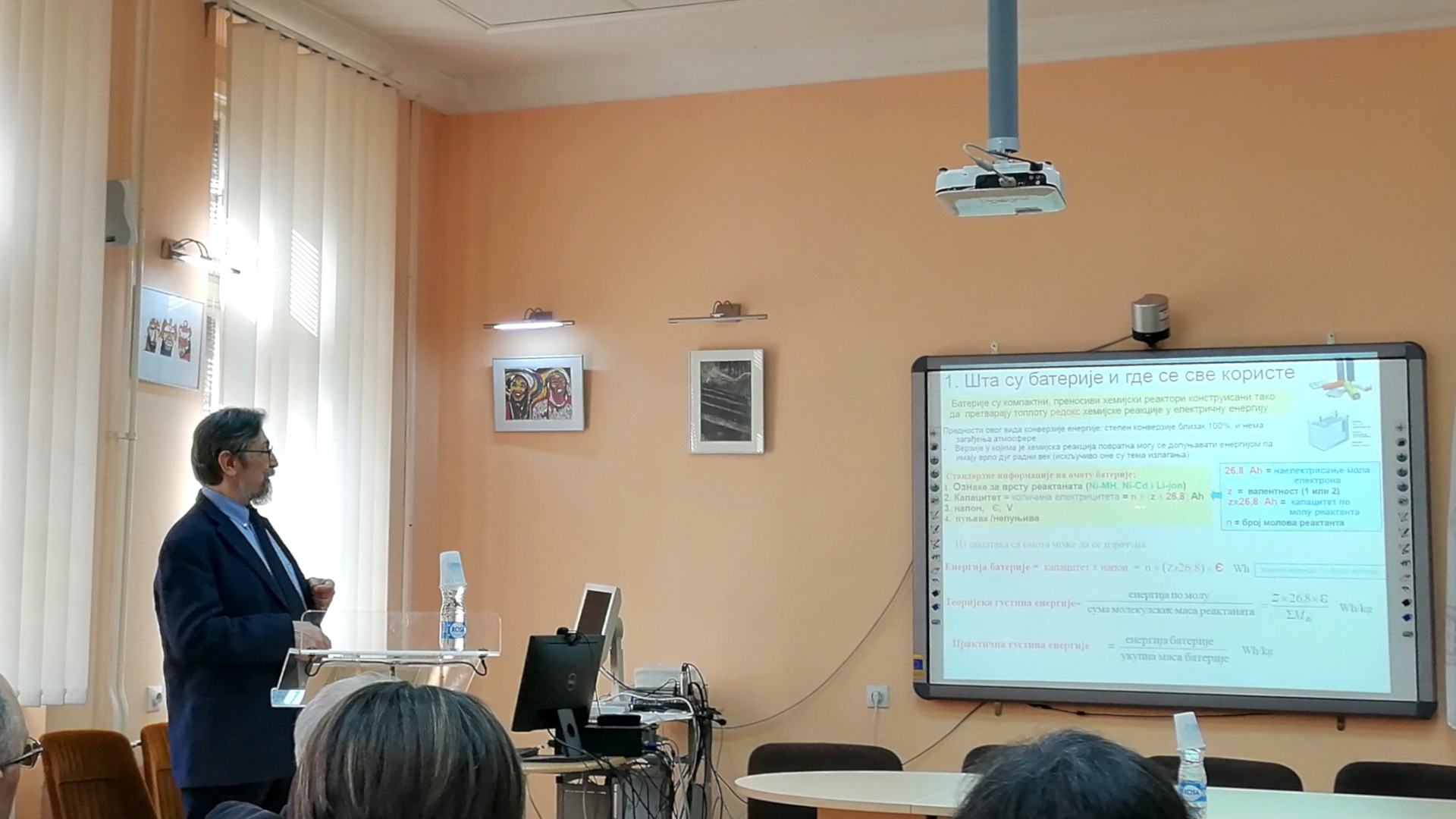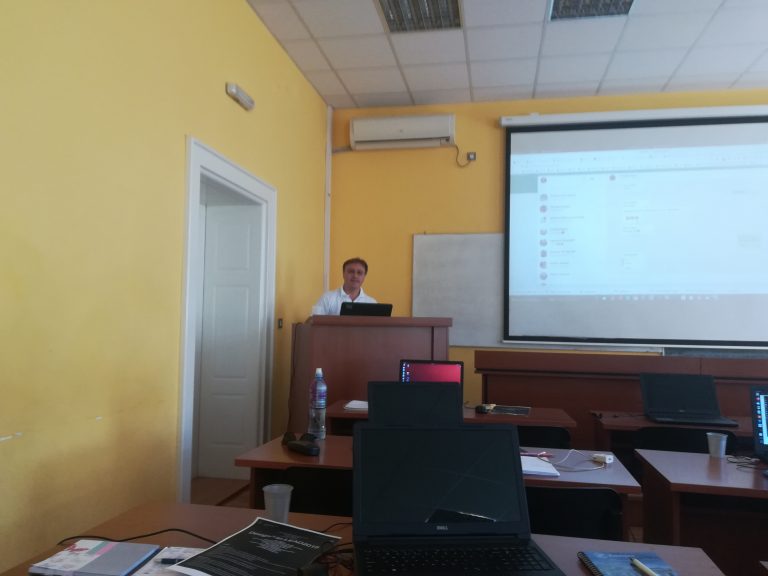
On the 18th February 2019, Dr. Slavko Mentus, a full member of the Serbian Academy of Sciences and Arts (SASA) and full professor at Faculty of Physical Chemistry in Belgrade, gave a lecture on batteries—background science and the importance of this type of power source—at the University of Niš, organized by SASA, Branch in Niš. Knowing about his previous work on weather control and batteries, I wondered how he managed to connect these two fields. After the lecture, Prof. Mentus kindly agreed to share his expert opinions on these subjects.
People know you not only as a university professor but also as an inventor. Would you like to tell us more details about your inventions related to weather control?
My research in the field of weather control was connected with the need to reduce the consumption of silver iodide in anti/hail rockets produced by a few domestic factories, in the period 1980-1995. At the beginning, Russian pyrotechnical mixture—in which silver iodide participated with 50 % by mass—was used in domestic rockets produced in Sloboda Čačak. After a period of investigation, directed and controlled by Republic Hydrometeorological Office, and supported by rocket producers, the old pyrotechnical mixture was replaced by one containing 10 % of silver iodide but for ~100 times more efficient in anti-hail protection than the former one. I submitted it to the domestic Intelectual Property Office in 1992, and in 1994 in Canada, USA, and Mexico. Its efficiency was confirmed in the Colorado State University cloud chamber, served then as a recognized standard facility in the field of weather modification, and was used in an international project of weather modification in the USA. In Serbia, domestic rocket producer Poliester Priboj is authorized to use it from its very discovery. It is worth mentioning that anti-hail formulations may also be used in other forms of weather modification (rainfall regulation to prevent floods, heaven clearing, cold fog precipitation etc.); however, these directions of investigations did not come to life in our country.
What got you interested in this field in the first place?
The challenges to solve an important problem is the usual driving force in the scientific world. The experiments in the field of weather modification were also visually very interesting. In my homemade cloud chamber, I observed how a piece of smoke obtained by burning pyrotechnical mixture introduced in a
It is sad that after political perturbations in Serbia, upon being an appreciable contributor to a global knowledge to 1990s, we lost all institutions interested in the scientific side of weather modification, and/or even for simple control of efficiency of weather modification tools produced, or perhaps imported, in Serbia.
You gave an inspiring lecture on the importance of batteries in the modern world. Do you find a relation between your research and Tesla’s mission (Elon Musk’s company)?
The team working under my leadership on the national project under the title “Lithium-ion batteries and fuel cells – research and development” from 2011, contributes with the publications in leading international physicochemical and electrochemical journals to global knowledge on batteries. Many other teams act worldwide in the same topics with higher or lower success. The scientific results are open to the public. This knowledge is open to producers of electric cars which use them in its own development, as well as for all other readers. It is difficult to estimate our own contribution to Tesla’s mission, it is most probably negligible having in mind huge worldwide scientific production, but in each case is a part of them.
How is your scientific work in the field of batteries important for ordinary people?
My team is directed primarily to the development of alkali-ion batteries with aqueous electrolytes, which are poorer in energy than standard ones using organic electrolytes but are ecologically more acceptable and simpler for production. They might nevertheless be energetically richer than actually used classical batteries with contain ecologically harmful metals (lead, cadmium, zinc) and may effectively replace them.
The development of ecologically more acceptable and cheaper battery forms would be a significant contribution to the quality of life, having in a mind broad range of portable electronic devices in use now by ordinary people.
Dr. Slavko Mentus
Would you please give a prediction about the future use of batteries versus fossil fuels in vehicles?
The batteries of a particular kind, called lithium-ion batteries, are selected today as an optimal solution of an ecologically acceptable source of driving energy in public traffic. The fuel cells that require tanks of compressed hydrogen are competitive but at this moment less acceptable solution. The main problem with the use of batteries is relatively large mass needed to keep standard mobility range achieved with fossil fuels (~500 km with one filling), which is now about a half of the average mass of automobile. However, their use instead of fossil fuels is an ultimatum, if mankind would like to hinder further climate changes to spread in a wrong and irreversible direction. There is a theoretical possibility to decrease the mass of batteries to one-tenth of the average automobile mass, which would be quite acceptable from any aspects. The future batteries are not obligatory the lithium-ion ones, but those in which lithium or other metals in a pure state, and oxygen from air, are used as reactants. The recent development in the field of material science and technology will enable this goal in the near future. Note that not only lithium, but also other light metal may become usable in that sense.



